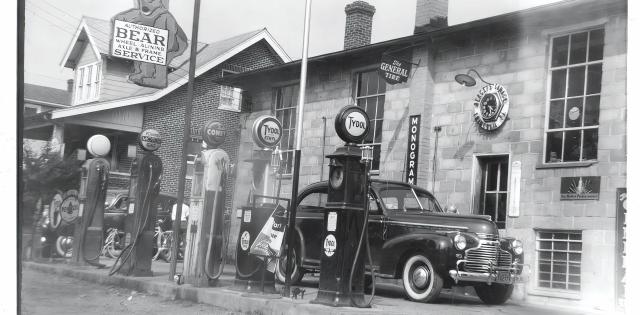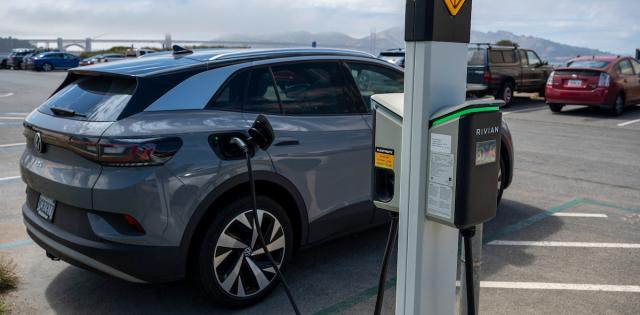If there is strength in numbers, America’s franchised auto dealers are stronger than ever, as nearly 500 dealers and dealer association executives representing all 50 states gathered in the nation's capital this week for NADA's annual Washington Conference and Congressional fly-in.
This year, more than 300 Capitol Hill visits with members of Congress took place over the two-day event.
In addition, lawmakers from both sides of the aisle came to the Capital Hilton to speak to attendees, including Sen. Pat Toomey (R-Penn.), Rep. Kurt Schrader (D-Ore.), Rep. Mike Gallagher (R-Wisc.), and Rep. John Delaney (D-Md.), as well as Office of Management and Budget Director Mick Mulvaney.
Auto Dealer Activism in Action
Rep. Gallagher, a millennial member of Congress and former Marine Corps officer, kicked off the first day of events, speaking to the 65 NextGen dealers, and reminding them about the power of activism among young auto dealers.
That power in numbers was clear during the past year as Congress approved NADA-supported legislation, including preserving full deductibility of floor plan interest in the 2017 tax reform bill and repealing Consumer Financial Protection Bureau’s guidance on auto lending that threatened to eliminate dealer discounts on auto credit.
NADA's strong grassroots efforts played a huge role in these successful outcomes, noted Tom Holcombe, NADA Legislative Affairs Committee chairman and owner of Little Apple Toyota Honda in Manhattan, Kan. “Whether it’s tax reform or preserving state franchise laws, we all work as one team. Together we kept our businesses alive,” Holcombe said.
Jodie Teuton, ATD Chairman and owner of Kenworth of Louisiana, also called on auto and heavy-duty truck dealers to work together to “capitalize on our strength” and “tap into our grassroots power.” America’s 2,000 truck dealers “know the road blocks that have to be driven around, over and through, which gives us the perfect perspective for dealing with Capitol Hill.” Earlier this year, ATD held its annual fly-in, holding over 90 meetings and advocating for sensible tax and regulatory processes, Teuton said.
NADA members know that advocacy doesn’t just take place during Hill visits, – which is why representatives from Google, LinkedIn, Twitter, Phone2Action and NADA were on hand to discuss ways to use social and digital platforms to reach policymakers on issues as they happen.
And Charlie Cook and Amy Walter of The Cook Political Report rounded out the roster of speakers at Wednesday’s general session, offering their insights on the upcoming midterm elections, the 2020 presidential election, and how today’s non-stop news cycle is impacting politics inside the Beltway.
Trade and Tariff Concerns Dominate
NADA's legislative staff was on hand to highlight the many key issues for dealers to address in their face-to-face meetings with their members of Congress. Trade was the main policy issue that ran throughout the two-day conference – specifically, the Trump administration’s threat to impose tariffs of up to 25 percent on imported automobiles and auto parts.
“Whether you sell domestic or import, we’re all boiling in the same pot of water,” explained Wes Lutz, NADA 2018 chairman and president of Extreme Chrysler/Dodge/Jeep, RAM in Jackson, Mich. He noted that a tariff applied to all imported autos and auto parts would increase prices for all vehicles sold in the U.S. to the tune of $4,400 on average. The proposed tariffs would also decrease annual auto sales by 2 million units and result in the loss of 117,500 dealership jobs.
During their Hill meetings dealers urged Congress to work with the Administration to implement fair trade policies that preserve jobs, sustain economic growth and maintain affordable vehicles for consumers, because strong auto sales are vital to a healthy economy. As NADA President and CEO Peter Welch noted, “If growth in the GDP stays at 3 percent and unemployment stays low, I don't see any reason why we can't have several years of 17 million in car sales,” And that would yield dividends throughout the American economy for years to come.












